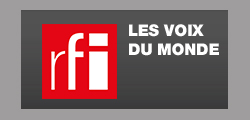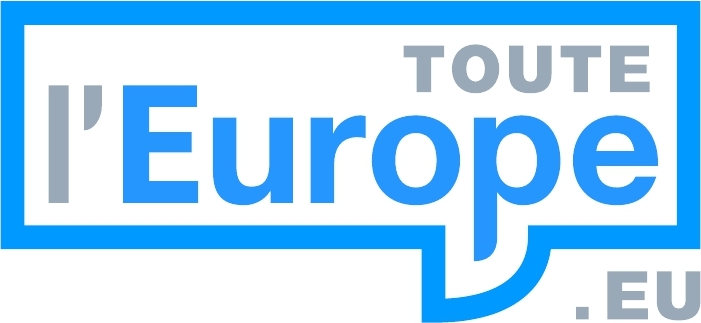

Angela Merkel, ready for a fourth mandate?
The chancellor has launched the battle for the legislative elections. In front of the 1000 delegates of her party (CDU), Angela Merkel was firm on immigration in order to counter the populist right.

A fourth term would also make Merkel longest governing chancellor in Germany
In view of the Brexit and Donald Trump, Angela Merkel announced her candidacy for a 4th mandate to the Chancellery Sunday November 20th. What are her chances? What support can be expected from the German population and parties? Would she be a bulwark against the right-wing populist AfD?
Political scientist Barbara Kunz reacts to the announcement of Angela Merkel.
Does Russia still have an "energy weapon"?
What are the Current Challenges for Gazprom and Russia’s Energy Policy? What are the Gas Risks for Europe? Is the Nord Stream-II a Risk or an Opportunity for Europe?

Will Germany be ungovernable after the elections in 2017?
One year before the general elections and even if Angela Merkel remains a favourite, the political scene in Germany seems more fragmented than ever.


Germany - between 'welcome culture' and the outbursts of xenophobia
The 3rd of October is a national holiday celebrating German unity since 1990. What has the mass arrival of migrants these past years revealed about German society?

Germany: populists weaken Angela Merkel
The party Alternative für Deutschland founded only three years ago against the Euro unites Germans against Berlin's open-door policy. And on the eve of new elections, more and more of those that normally don't vote are joining them.
"Angela Merkel betrayed German traditional values according to some conservatives"
Will Angela Merkel still be chancellor in a years' time? Hans Stark gives an overview over the German political landscape. According to him, the rise of the right wing populists and eurosceptics will continue, but won’t hinder the forming of a government coalition.


Is Germany becoming just like the other European countries?
After the recent electoral setbacks for Angela Merkel which saw the party Alternative for Germany (AfD) enter yet another two regional parliaments (Berlin and Mecklenburg-Western Pomerania), is there a possiblity for Germany to become just like the other European countries?


Welcoming refugees' in Germany: assessment after one year
What can be said about German politics on the welcoming of refugees this past year? Is the integration process effective?
The intervention in Mali: Weimar Triangle Analyses: French, Polish and German viewpoints on European questions
On an initiative of the German Council of Foreign Relations (DGAP), the Study Committee for Franco-German Relations (Cerfa) of the French Institute of International Relations (IFRI) and the Polish Institute of International Affairs (PISM) are regularly publishing short contributions on a common subject, written by three experts of these institutes. The purpose of these “Weimar Triangle Analyses” is to give the French, Polish and German views on central questions of European politics and European integration.
Britain's potential exit from the EU – Weimar Triangle Analyses: French, Polish and German viewpoints on European questions
On an initiative of the German Council of Foreign Relations (DGAP), the Study Committee for Franco-German Relations (Cerfa) of the French Institute of International Relations (IFRI) and the Polish Institute of International Affairs (PISM) are regularly publishing short contributions on a common subject, written by three experts of these institutes. The purpose of these “Weimar Triangle Analyses” is to give the French, Polish and German views on central questions of European politics and European integration.
Germany and the Arab Spring
Much of the analyses of German reactions to the Arab Spring uprisings have focused on Germany’s contentious decision relating to Libya. By siding with the critics of military intervention in abstaining from UNSC 1973, Germany vexed its allies and arguably displayed an astonishing lack of geostrategic foresight and moral rectitude.

European Task Force on Irregular Migrations - Country Report: Germany
From a European comparative perspective, Germany represents the case of a highly restrictive migration control regime. Between 400,000 and 600,000 migrants live in the country without legal resident status. Their access to social rights such as health care and education is severely restricted, and individual or collective regularization channels do not exist.
German Nuclear: Green Is Good Politics
In polarized politics, the voter must take on faith the wisdom inherent in the principled political position. Who cannot be impressed by the nuclear catastrophe at Fukushima, especially after living through the fallout from Chernobyl? But is it reasonable to send the voter to the booth with only half the information? Does the German voter have any idea what it means to shut down its nuclear power in just ten years? Have German politicians made any effort to tell them?
German Energy Policy
On the 28th September 2010, Angela Merkel announced her government’s publication of an “energy concept” describing the target which the Federal Republic hoped to give itself regarding its energy consumption in 2050.
MALE Drones: Europe's Options?
European countries, lead by France, are expected to take a decision soon on the development and acquisition of MALE drones.
Their choices will be crucial not only for the preservation of European operational sovereignty in military terms but also to guarantee the future of the European aerospace industry.
German Power Options: Lack of Clarity Will Be Costly
The German environment minister Norbert Röttgen (CDU) revived the German debate about the future of nuclear power in February when he argued for a limited lifetime extension of Germany’s nuclear plants.
Support independent French research
Ifri, a foundation recognized as being of public utility, relies largely on private donors – companies and individuals – to guarantee its sustainability and intellectual independence. Through their funding, donors help maintain the Institute's position among the world's leading think tanks. By benefiting from an internationally recognized network and expertise, donors refine their understanding of geopolitical risk and its consequences on global politics and the economy. In 2024, Ifri will support more than 70 French and foreign companies and organizations.










